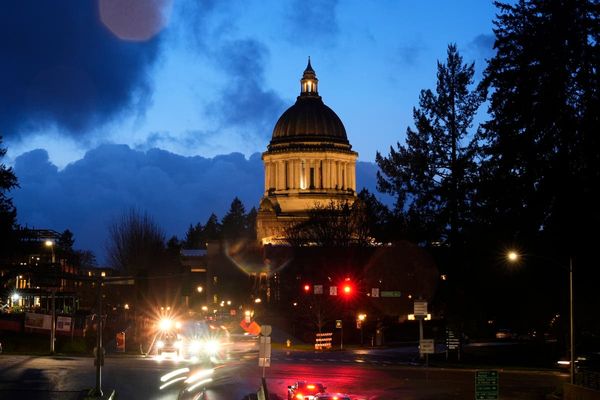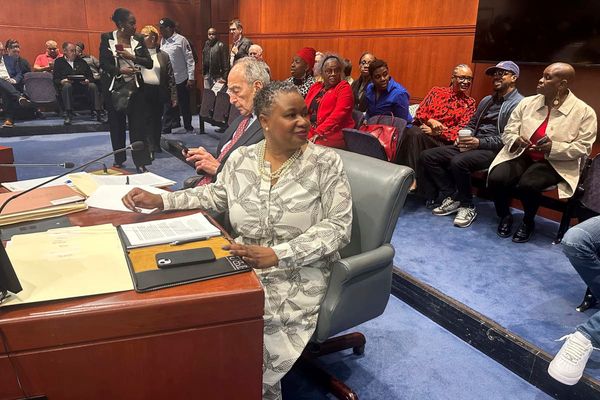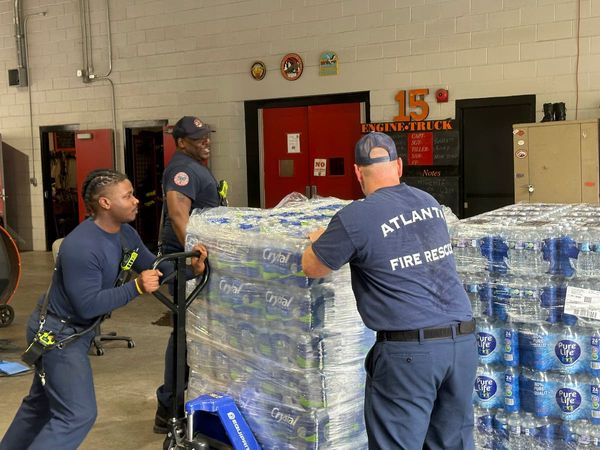








A groundbreaking frog identification project has hit a new milestone, with one million validated records of the sensitive amphibians.
FrogID, the Australian Museum's national frog count, said a Spalding's rocket frog was its "one millionth frog record".
FrogID lead scientist Jodi Rowley, who verified the millionth call, said it "sounds a little like a chicken combined with a lawnmower".
"It's an unmistakable sound," Dr Rowley said.
It only calls during the wet season from north-west Northern Territory to far north-west Queensland, near the Gulf of Carpentaria.
Volunteer citizen scientist Elliot Leach recorded the frog about 50 kilometres from Cloncurry.
Dr Leach, an ecologist and new user of the FrogID app, heard the frog calling from more than 100 metres away.
"It is such a distinctive sound," she said.
It was the first FrogID submission from the area.
Dr Rowley said this increased FrogID's spatial coverage to "36.5 per cent of continental Australia".
The project is among the largest global citizen science projects for frogs, involving more than 45,000 volunteers.
Dr Rowley said she was thrilled and grateful to the tens of thousands of Australian citizens who helped achieve the one-million milestone.
She said they had made an "incredible contribution".
"It is inspiring and encouraging to see such interest in our precious frogs."
The Australian Museum launched FrogID in 2017 to create a database of frog records and audio files to help conserve the country's amphibians.
Museum chief executive Kim McKay said the app was developed with the help of IBM and the federal government.
She said the GPS technology in the app "allowed thousands of Australians of all ages to contribute".
"Dr Rowley and I brainstormed how we could use smartphone technology to record frog calls.
"It was uncharted territory. In our first meeting, my prediction of one million calls was met with scepticism and a few raised eyebrows."
NSW Minister for the Arts John Graham said FrogID was an example of "how the Australian public will support a community-led project for the good of the environment".
"I love this app," Mr Graham said.
The app has enabled data collection on rare and threatened frog species, documenting the decline of some species from parts of their range.
FrogID submissions helped identify five new species and inform more than 20 research papers.
They also inspired an ARIA nominated album, titled Songs of Disappearance.
Australian Museum Research Institute director Kris Helgen said frogs were "charismatic and colourful animals" and "important for healthy ecosystems".
Professor Helgen said frogs were "highly sensitive to environmental change", including pollution, land use and climate change.
"They are key indicators of the health of our environment. They are the canary in the coalmine for Australian ecosystems."
He said Australia had 249 native frog species, with "many in serious decline".
"There is a critical need to better understand our frogs and their habitats."
The historic decline in frog numbers is largely due to a frog pandemic caused by the amphibian chytrid fungus disease.
Professor Rick Shine, of Macquarie University, said FrogID was "filling a critical gap in our understanding of the frogs of Australia".
"Frog species are declining all over the world, with many tragic cases of extinction," Professor Shine said.
"The first step towards stopping that decline is to understand what kinds of frogs we have and where they are found.
"That's a formidable challenge with creatures that are small, well-hidden and active only by night."
Professor Trent Garner, of the Institute of Zoology in London, said the FrogID data was "as rare as the frogs are becoming".
He added that they were crucial for "devising the conservation actions that will hopefully lead to those frog numbers going up".







